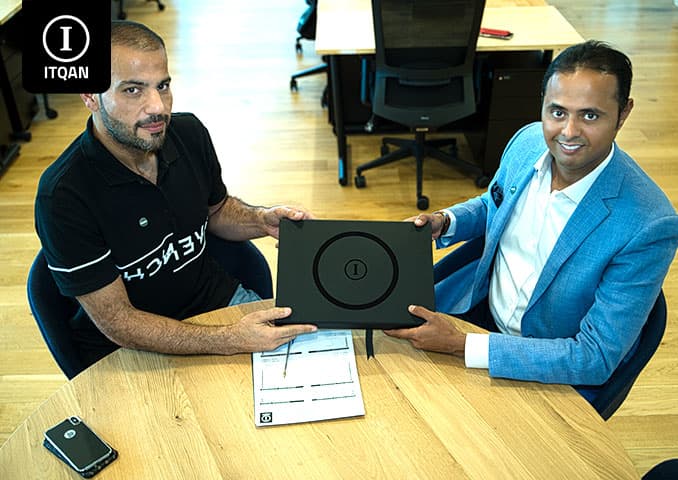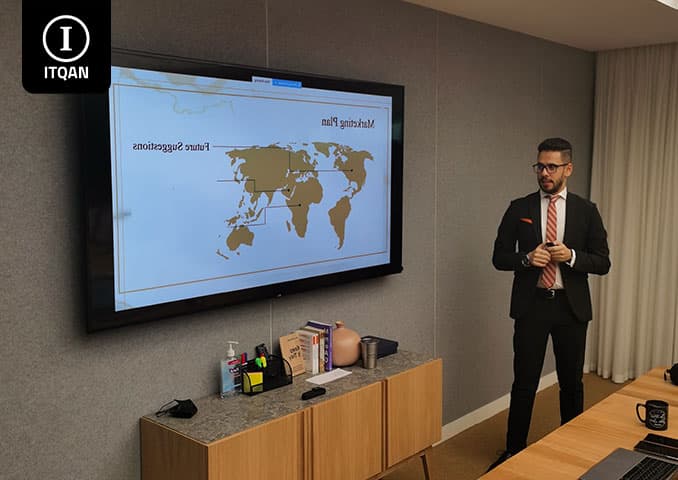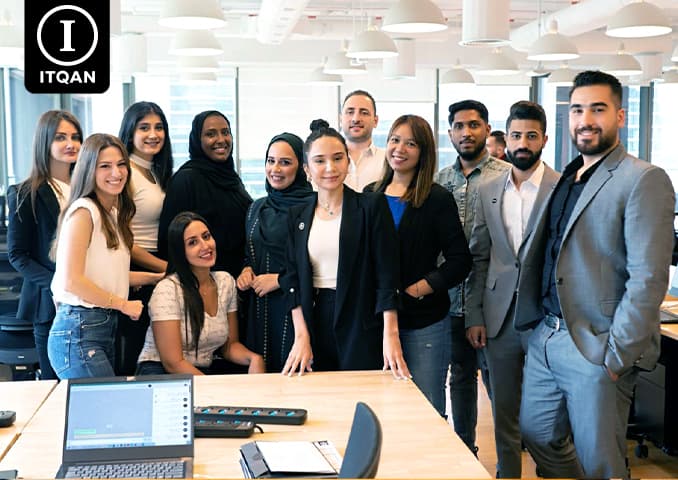Dubai’s free zones are one of the most prominent investment options that attract businessmen and investors from all over the world. Thanks to its unique system and the various benefits it offers, Dubai has become a global business hub that is witnessing an increasing activity in establishing companies. Establishing a company in a free zone in Dubai offers tremendous investment opportunities, thanks to benefits that include 100% foreign ownership, attractive tax exemptions, and an advanced business environment. These areas allow new companies to achieve their goals successfully and effectively, making them the ideal choice for investors looking to enter or expand in the UAE market. In this article, we will review the details of the comprehensive process of establishing a company in a free zone in Dubai, starting from choosing the right area, through the procedures and requirements, and ending with the benefits that companies can achieve.

جدول المحتوى
ToggleHow to set up a company in Dubai Free Zone
Setting up a company in Dubai Free Zone involves several key steps. Here is a simple guide to doing so:
- Choosing a Free Zone: There are several free zones in Dubai such as JAFZA, DAFZA, and DMCC. Choose the one that best suits your business type and requirements.
- Determine the type of company: Decide what type of legal entity you want to establish, such as a limited liability company (LLC), a private joint-stock company, or a sole proprietorship.
- Select a business name: Choose a trade name that complies with the free zone standards and reserve it. You may need to submit alternative suggestions if the first name is not available.
- Preparing documents: Submit required documents such as passports, passport photos, business plans, and articles of association. Documents may vary depending on the requirements of the free zone.
- Submitting the application for incorporation: Submit the application for incorporation with all required documents to the Free Zone Authority. Documents may include the Memorandum of Association, Articles of Association, and approvals from the relevant authorities if required.
- Obtaining the license: After reviewing and approving your application, you will receive your business license. This license allows you to conduct business in the free zone.
- Open a bank account: Open a business bank account with one of the approved banks in Dubai.
- Office furnishing: Furnish the office and provide the necessary equipment to run the business. The free zone may provide you with office leasing options.
- Employment and Additional Licenses: If you plan to hire employees, you will need to arrange work visas and additional licenses for them.
- Getting Started: After completing all the steps and obtaining the necessary licenses, you can start operating your company and practicing commercial activity.
Make sure to follow the procedures and guidelines of the free zone you have chosen to ensure compliance with all laws and regulations.
Costs of establishing a company in the Dubai Free Zone
The costs of setting up a company in the Dubai Free Zone vary depending on the type of business, the free zone, and the size of the company. However, in general, the costs include the following:
- Registration Fees: The basic registration fees for establishing a company, which vary by free zone. These fees usually include the costs of submitting the application and issuing the trade license.
- License costs: The cost of obtaining the commercial license required to operate in the free zone.
- Office Rent: The cost of renting an office or office space within the free zone. Some free zones may offer options for renting furnished offices at different prices.
- Insurance: Insurance fees that may be required on the office, equipment or even employees.
- Legal documents: The costs of preparing and documenting legal documents such as the articles of incorporation and bylaws, which may require paying fees to lawyers or consultants.
- Recruitment Services: If you intend to hire employees, you will need additional costs for work visas, recruitment costs, and recruitment procedures.
- Bank Account Costs: Fees for opening a business bank account at a bank.
- Translation and Notarization Fees: If some documents are in a language other than English, you may need to pay a fee to have them translated and notarized.
- Annual Renewal Fee: After establishing the company, you will need to pay the license renewal fee and update the information annually.
Documents required to establish a company in the Dubai Free Zone
To set up a company in a Dubai free zone, you will typically need to submit a set of basic documents. Details may vary depending on the type of company and the specific free zone, but in general, the required documents include:
- Application form: The establishment application form provided by the Free Zone Administration.
- Passports: Color copies of passports of all founders and investors.
- Personal Photos: Recent personal photos of the founders and directors, often passport size.
- Articles of Association and Memorandum of Association: Legal documents that outline the company’s structure, objectives, and bylaws. These may need to be notarized and signed by the founders.
- Business Plan: A detailed business plan that outlines the nature of the business and the company’s goals.
- Power of Attorney: If there is a legal agent or representative acting on behalf of the founders, a power of attorney must be provided.
- Approval from relevant authorities: Sometimes, you may need approval from relevant authorities such as the Ministry of Economy or the Department of Economic Development, depending on the type of activity.
- Proof of office address: Proof of the office address or office space from which the business will be operated. This may include a lease or rental agreement.
- Copy of Emirates ID: If one of the founders or directors is a resident of the UAE, some free zones may require a copy of the Emirates ID.
- Residence visas: If the founders or directors have valid residence visas, these may also be required.
- Capital Details: In some cases, you may need to provide proof of availability of the capital required to start the company.
Licenses required to establish a company in the Dubai Free Zone
To establish a company in the Dubai Free Zone, you will need to obtain a set of necessary licenses depending on the type of business activity you wish to practice. The required licenses may include:
- Commercial License: The commercial license is the basic document granted by the Free Zone Authority, which allows you to practice the specified business activity. The license includes the details of the company such as the trade name and the authorized activity.
- Business Activity License: Some activities may require additional licenses related to the type of business activity. Make sure that your business activity is included among the activities approved by the free zone.
- Business License: You may need a special license to conduct an activity that requires additional approvals from regulatory authorities. For example, if the activity involves financial or medical activities.
- Export and Import License: If your company’s activity involves exporting or importing, you may need a special license for those operations. This license gives you the ability to handle commercial shipments.
- Industrial Business License: If you plan to set up an industrial activity, such as manufacturing or production, you may need a special industrial business license.
- Facility Use License: If you are using private commercial or industrial spaces in the free zone, you may need a license stating your use of the facilities.
- Health and Environmental Licenses: For some activities, such as those related to health or the environment, additional licenses may be required to ensure compliance with health and environmental standards.
Establishing a company in a Dubai free zone represents a strategic opportunity for many investors who wish to benefit from the favorable business environment that Dubai offers. Thanks to the free zone system, investors can obtain full ownership of their companies, benefit from tax exemptions, and benefit from a flexible legal environment that supports growth and expansion. The incorporation process, although requiring a set of procedures and documents, is designed to be smooth and efficient with the support provided by the relevant authorities. By following the right steps, investors can easily achieve their business goals and begin their journey in one of the most dynamic markets in the world. Ultimately, investing in Dubai free zones is a strategic step towards achieving success and growth in an advanced and thriving business environment.
Top Frequently Asked Questions About Setting Up a Company in Dubai Free Zone
What are the benefits of establishing a company in the Dubai Free Zone?
Benefits include tax exemptions, 100% foreign ownership, ease of incorporation, flexibility in business activities, and no restrictions on profit repatriation.
What types of companies can be established in free zones?
You can establish limited liability companies (LLC), private joint stock companies, sole proprietorships, or offshore companies depending on the type of activity and the required licenses.
How long does it take to establish a company in the free zone?
The incorporation process usually takes two to four weeks, depending on the speed of submission of documents and the availability of the required information.
Can I hire employees in my company?
Yes, you can hire employees, but you will need to obtain work visas and work permits for the employees according to local regulations.
Are there any restrictions on transferring profits?
No, Dubai free zones usually allow full repatriation of profits abroad without restrictions.

















